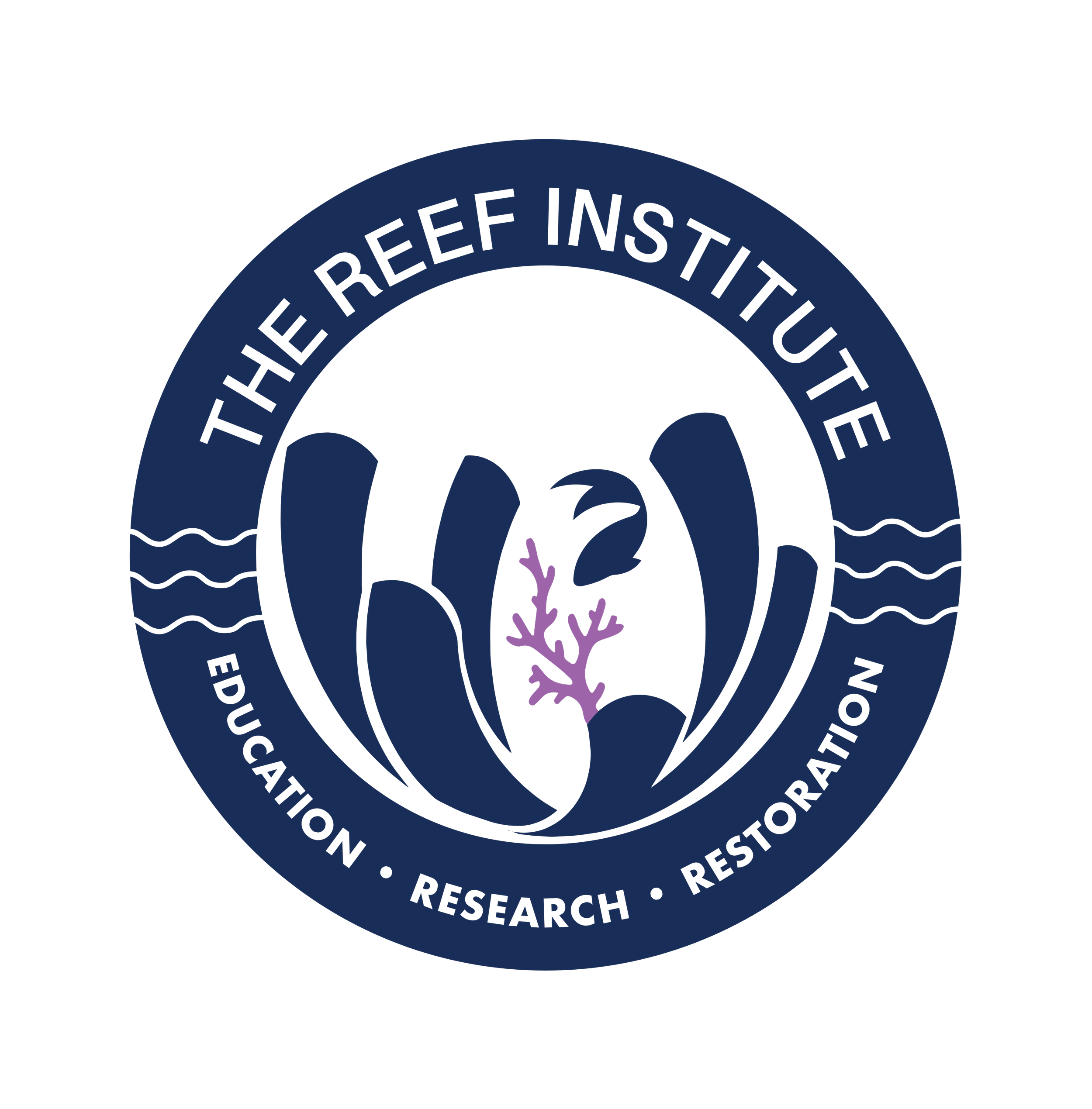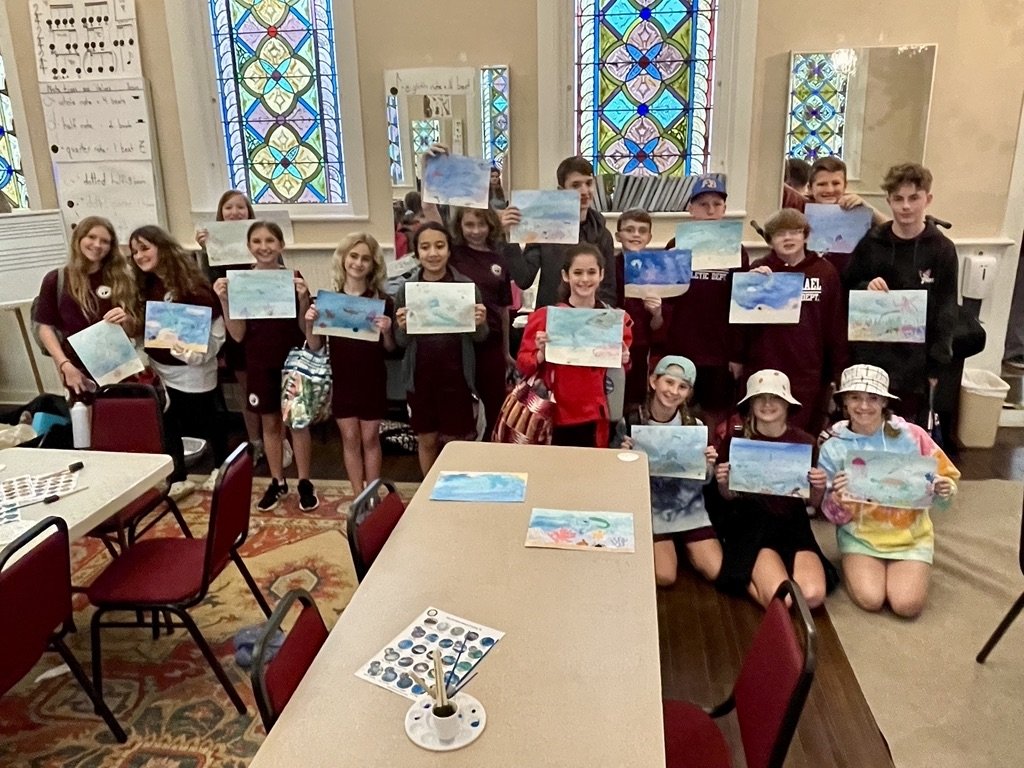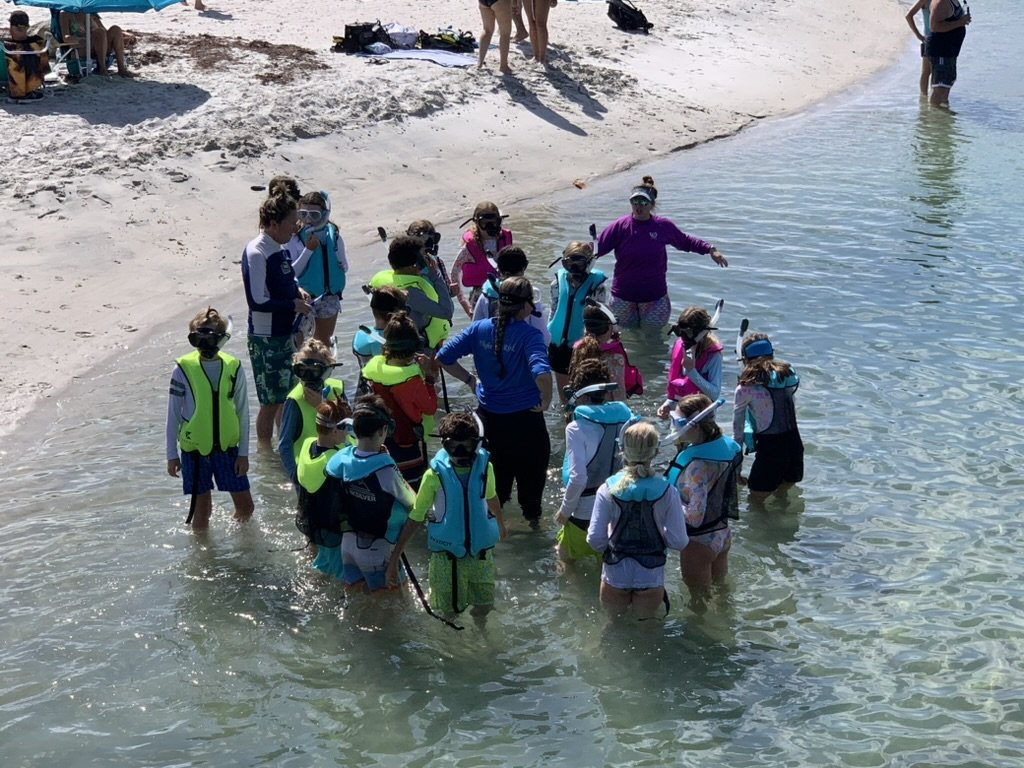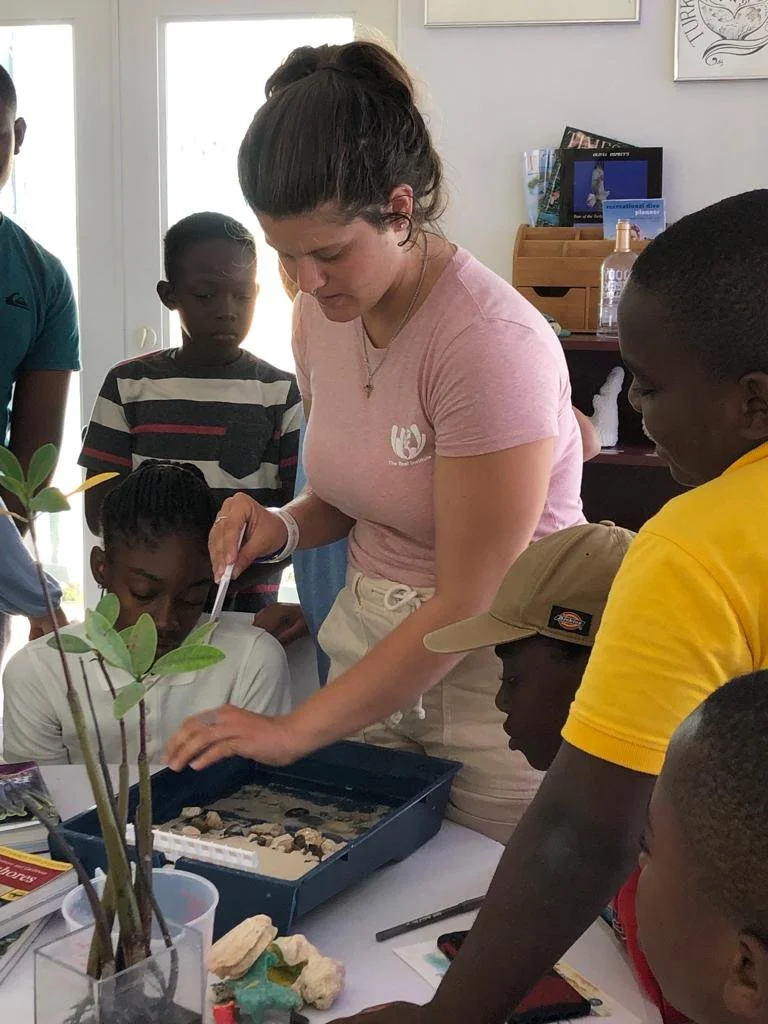Is Awareness Enough?
Awareness of an environmental issue does not necessarily make one a better steward of the natural world. Seeing a video or clip of piles of trash in the ocean or an animal in distress tugs at a heart string for a moment. Some will walk away with an attitude that exudes, "I must do more." However, many of us walk away and forget the changes we can make much too fast, especially regarding the ocean.
We must protect what we love. However, it takes more than awareness to fall in love with environmental issues- especially for an animal like coral.
This is why in 2018, the Reef Institute launched its "Awareness to Stewardship, approach to education. This approach seeks to change the direction of conservation by nurturing better stewards of the ocean and taking distinct action to save our seas. It does this by integrating these ideas:
Awareness and Sensitivity: Many people in the Caribbean may live within blocks of the sea and never visit the beach. If one can become exposed first to the ocean and life beneath the waves, one can begin the journey toward understanding its challenges. One cannot care about something one does not know, especially concerning coral.
Knowledge and Understanding: We desire in each interaction for individuals to walk away with a more profound sense of knowledge and understanding of the sea.
Attitudes: We desire to help students understand how vital the ocean is to our daily lives. As the famed marine biologist Sylvia Earle states, "With every drop of water you drink, every breath you take, you're connected to the sea..."
Skills: We desire to build skills in critical thinking, problem-solving, and decision-making through hands-on
learning to help individuals find creative pathways to solutions to marine issues.
Participation: We provide extensive activities that aid in exposure to the sea and the world under the waves. Our goal is to give everyone equal access to marine education.
Community Development:
Famed community development expert Dr. John Perkins states: "It has been said if you give someone a fish, he eats for a day, and if you teach a man to fish, he eats for a lifetime. Yet, if the man knows he owns the pond, it changes everything." Therefore, we must support local stakeholders to learn to take hold of environmental factors in a way that helps their community in the way they choose.
Since 2018 this means TRI has reached the following:
Local stakeholders in 6 Caribbean nations equipped to support their community in coral conservation efforts.
70 Interns
1000 people involved in citizen science efforts
3,000 students reached through mobile coral labs
4,000 students attended Educational Excursions, Marine Science Intensives, and coral outings, including Peanut Island snorkeling tours
5,000 children K-9 received marine science weekly and monthly as part of their science curriculum.
7,000 people were reached virtually through field trips, tours, and lecture series across Florida, the US, and the globe.
50,000 people reached through free education days at Peanut Island, outreach tables, interactive experiences, partner days, pop-up education, etc.
This summer, TRI offers High School Coral Certifications, Snorkel Trips, and much more! Want to know more about TRI's educational programming for the summer? Add to the numbers and grow as a steward of the ocean; reach out to Leneita Fix at lfix@reefinstitute.org





